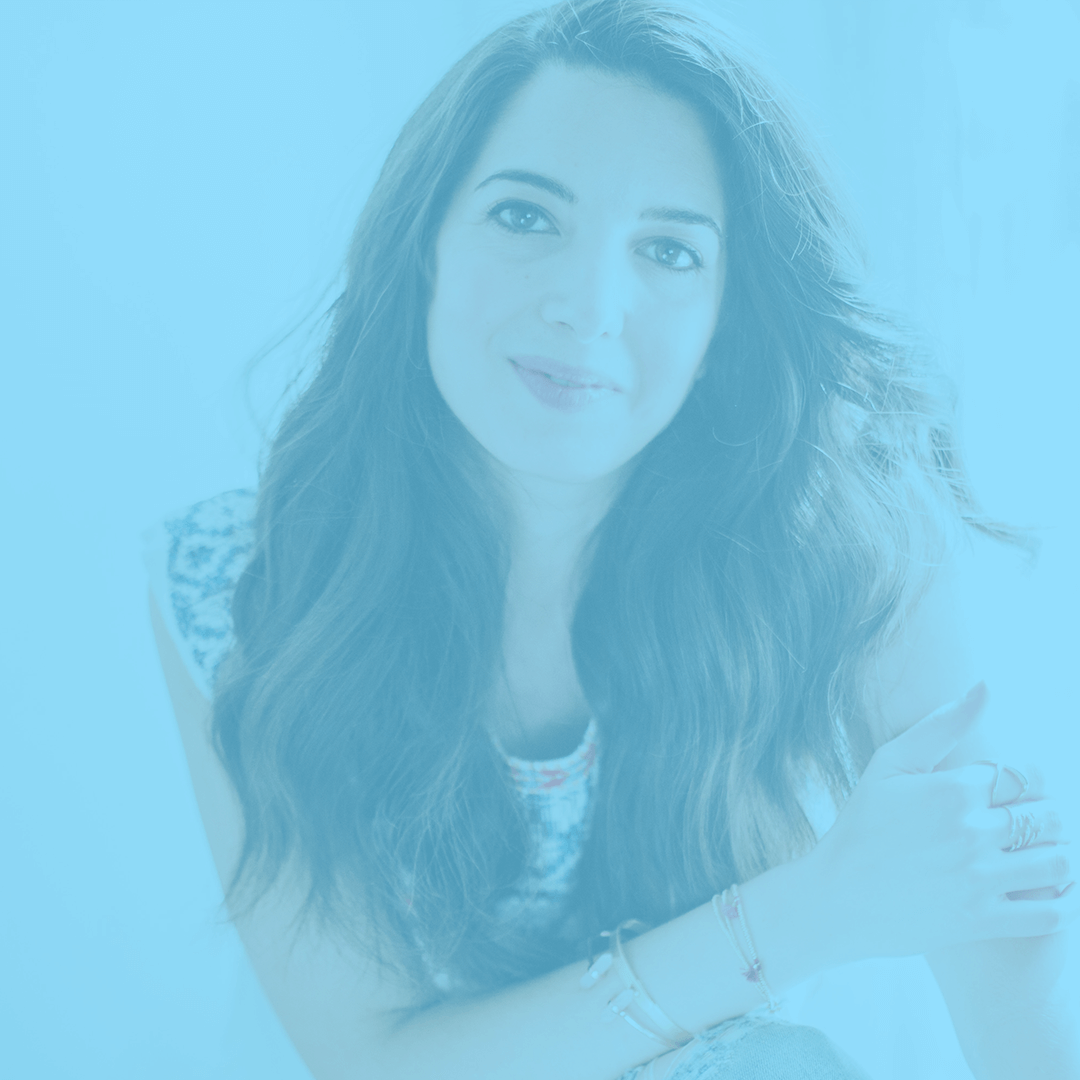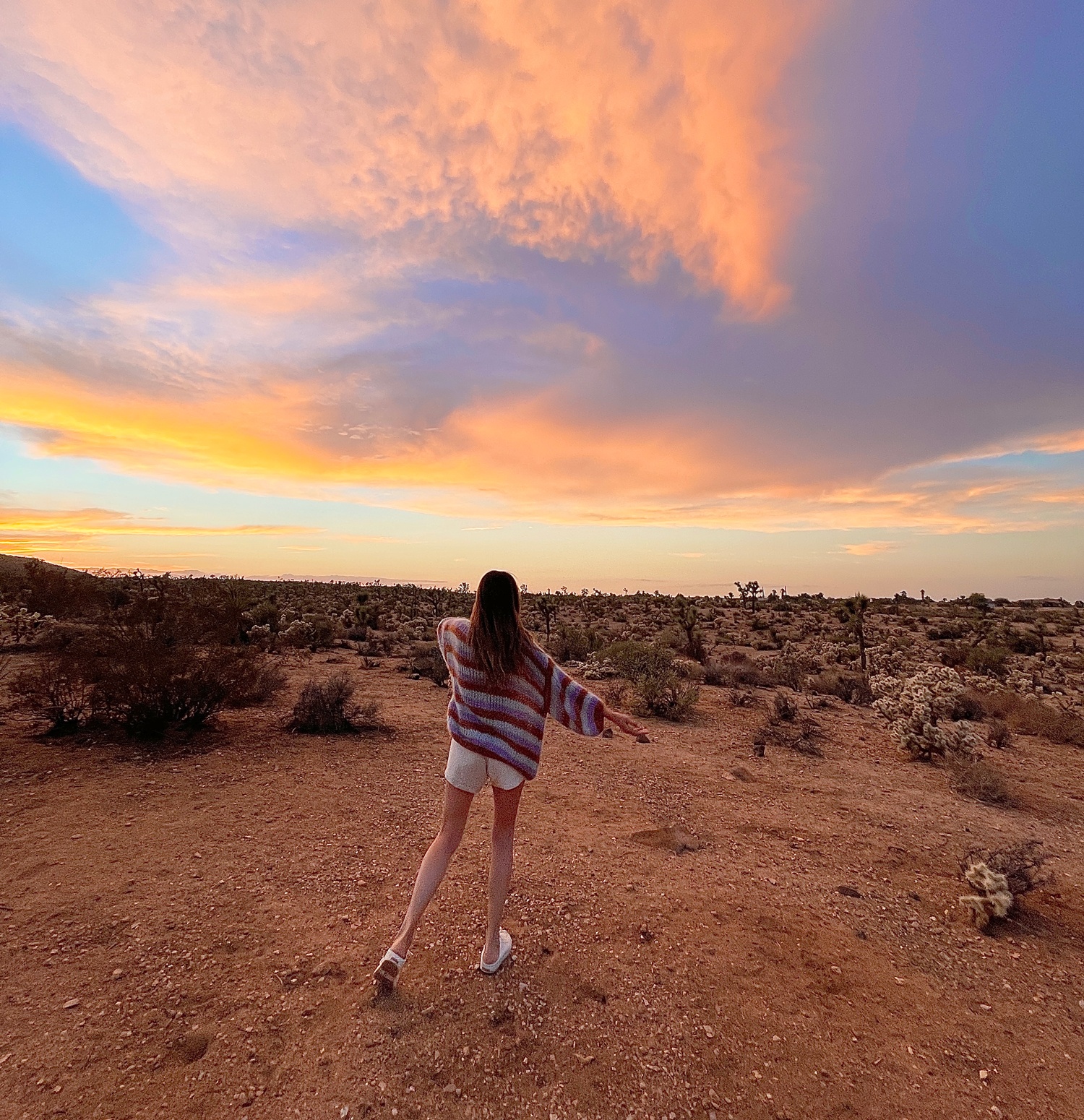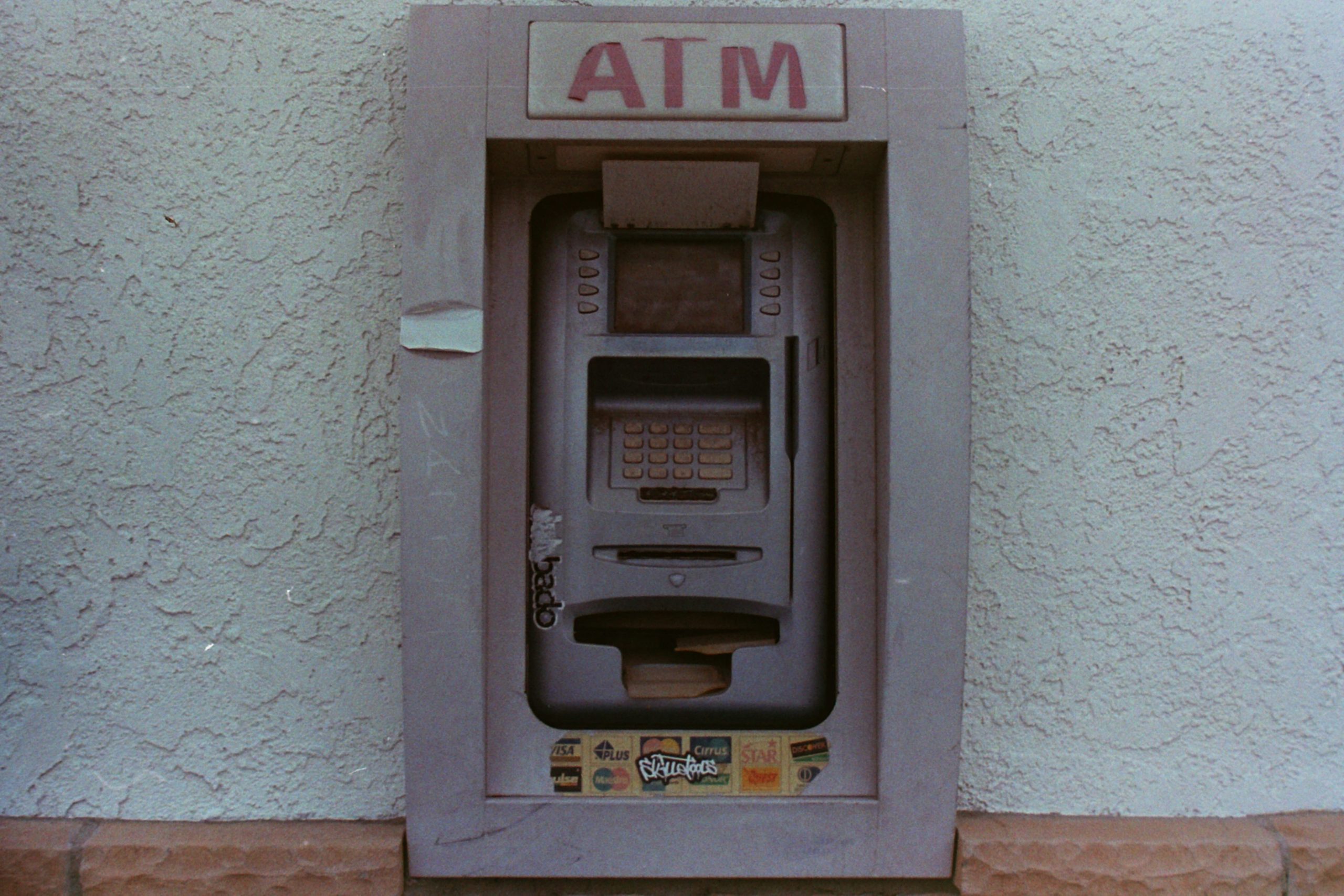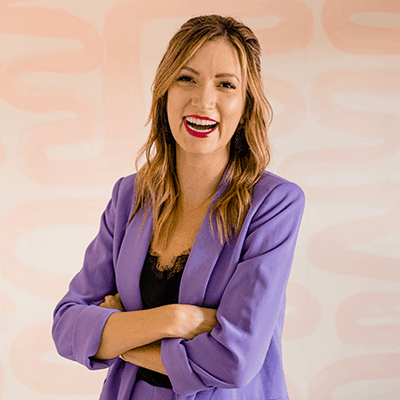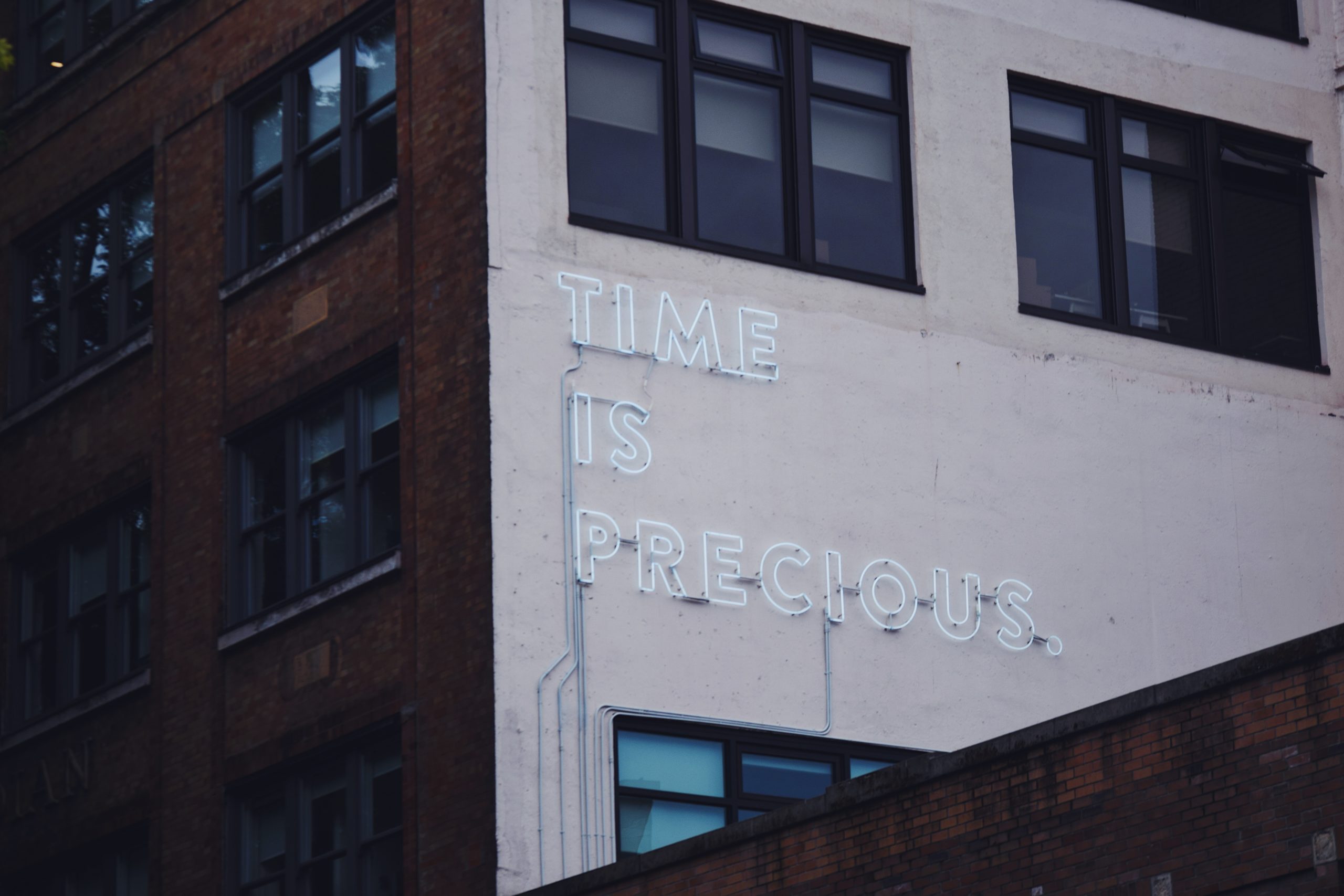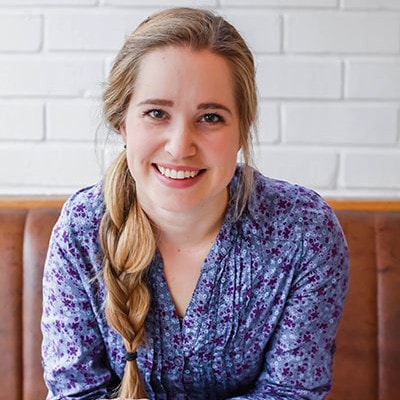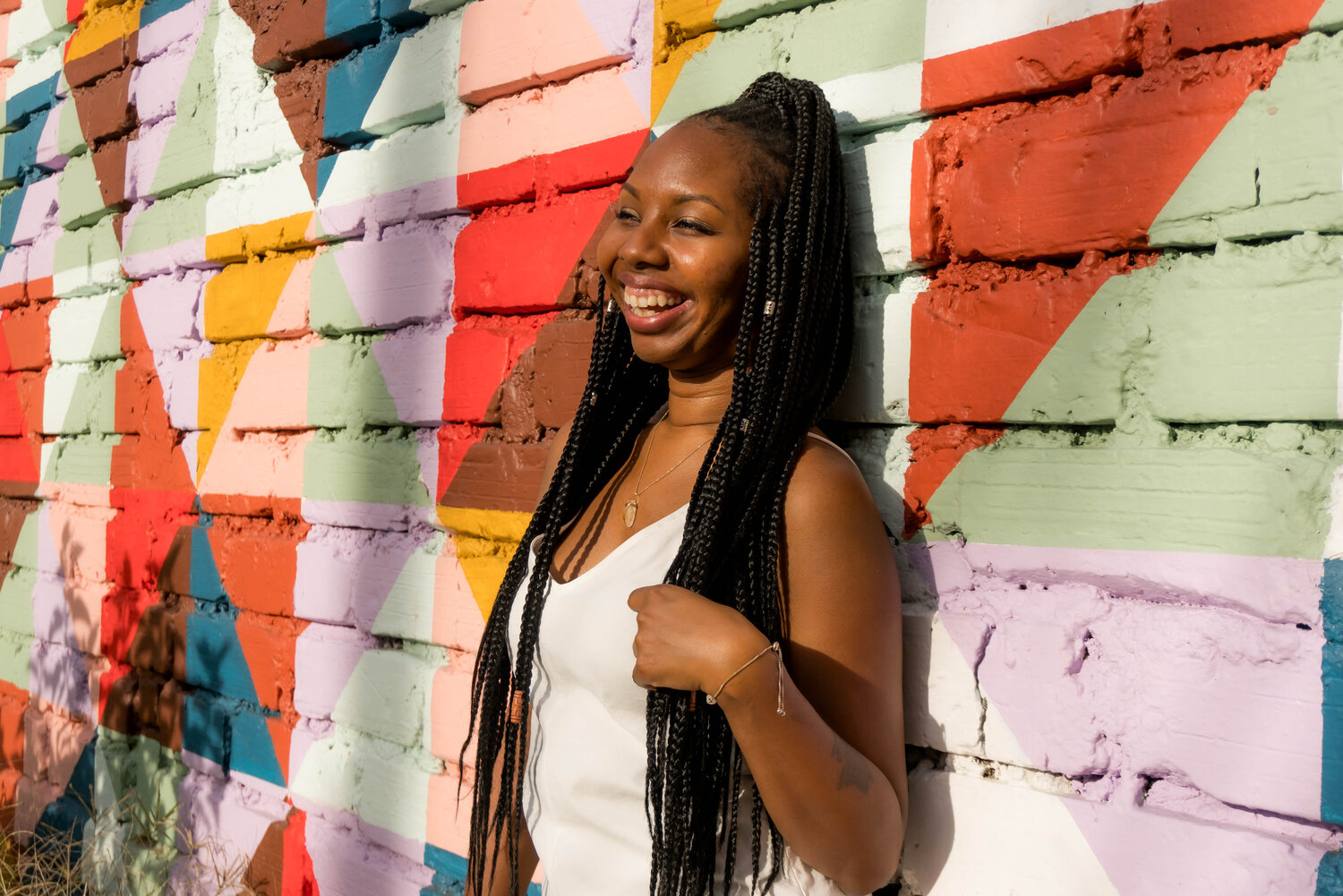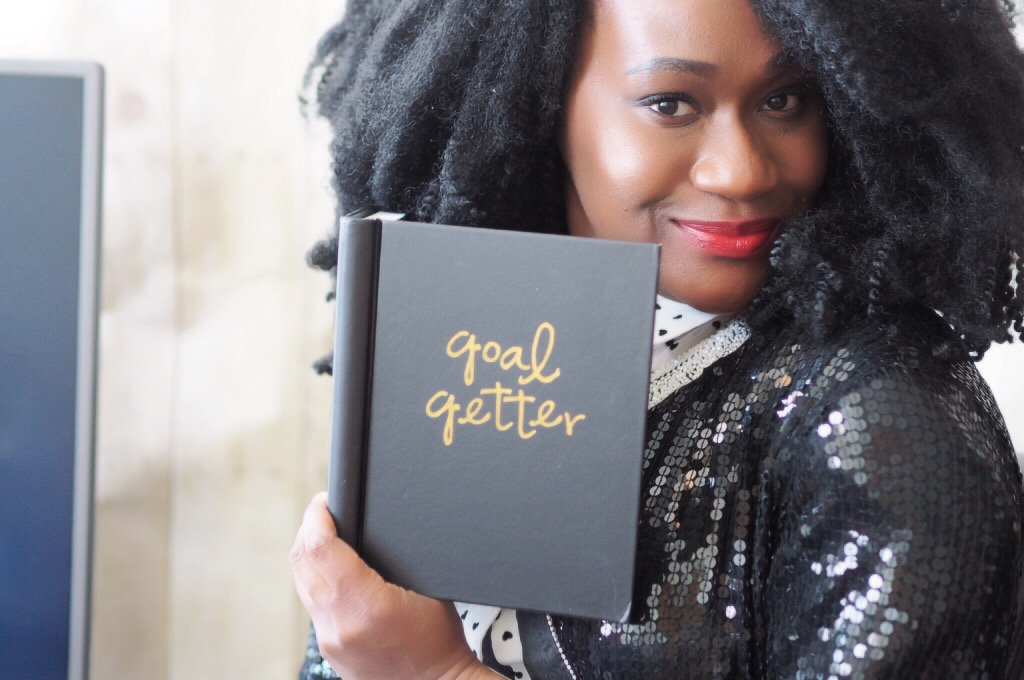Welcome back, Pursuit With Purpose family!
The first time I heard of Marie Forleo was during one of the lowest points of my life, waaaay back before I started my business. I felt unappreciated, stuck, and unhappy with my life.
After starting my blog as a fun, creative outlet in 2013, I began seeking advice from smart entrepreneurs who could lift me out of the funk I was in. Marie ended up being exactly that person for me.
I’ve always admired how Marie is able to blend her silly and funny sense of humor with spiritually sound life and business advice. Getting to interview her is a huge honor for me, and trust me, she does not disappoint in today’s episode.
We talk about how her parents influenced the trajectory of her life, how you can combine your passions into a career, and her secrets for a successful life and business.
This is one of my all-time favorite conversations and Marie has tons of smart advice and incredible stories to share. The main theme I took away from our chat? Everything is figureoutable (a phrase Marie coined!).
This convo will truly leave you feeling like ANYTHING in life is doable.
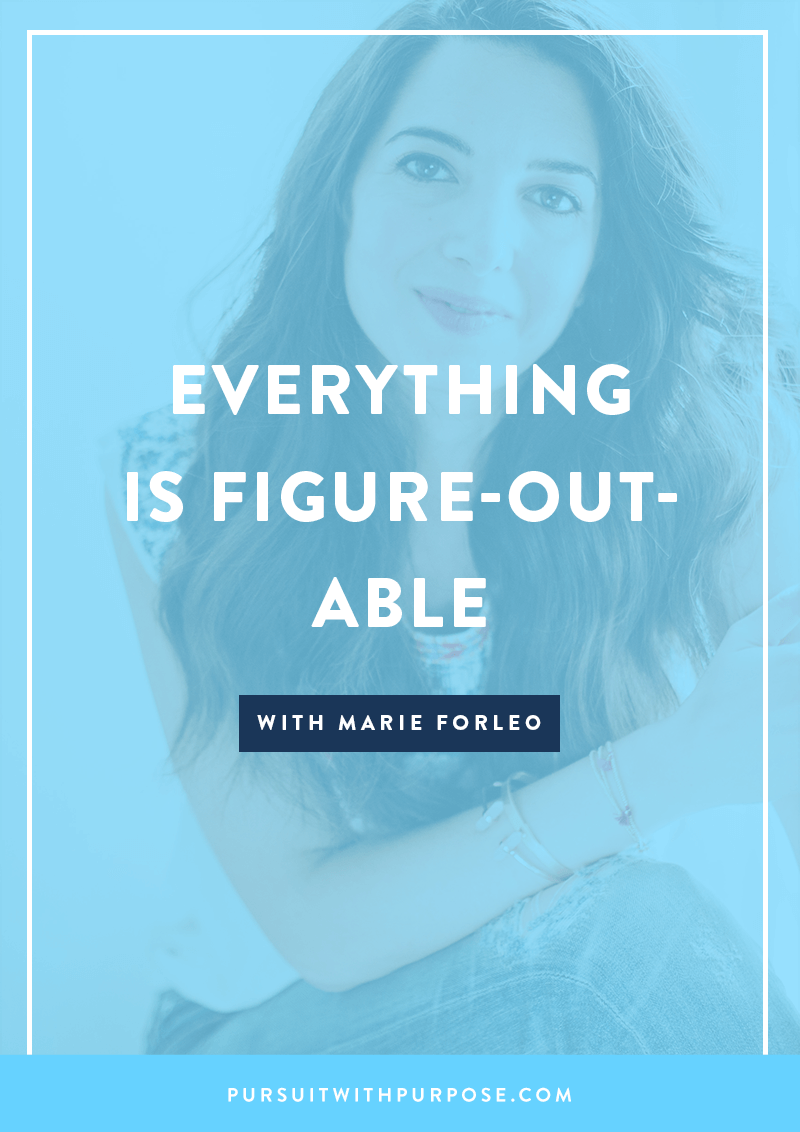
Check out the episode below:
In this episode, you’ll hear about things like…
- How Marie works through her own mindset and upper limits (and how you can identify what’s holding you back)
- The ways she has been able to create a truly diverse and inclusive community online.
- What she means when she says she is a “multi-passionate entrepreneur” — and how you can combine your many talents into your life and career rather than feeling pressured to “pick one thing.”
- Marie’s motto: “Clarity comes from engagement, not thought.” (a.k.a. Take ACTION, don’t just think your way through your problems).
- How Marie has learned to set very clear boundaries in her life in order to grow her business, while maintaining her well-being.
…And sooo much more! I personally teared up at one point because what Marie was saying was SO spot on and inspiring. Tune in to find out which part really got to me.
Some Questions I ask Marie…
1. To some people, you may look like an “overnight success,” when really, you’ve been creating content and value for years. What were those early years like, before the Marie Forleo we know today?
2. For someone who’s struggling to find their passion, do you have any tips on how to find it?
3. Were there any mindsets or Upper Limit Problems you had to work through in order to reach the level of success you’ve had?
Links from the interview:
- Marie’s Website
- B School
- MarieTV
- Half the Sky: Turning Oppression Into Opportunity for Women Worldwide, by Nicholas D. Kristof and Sheryl WuDunn
- A Path Appears: Transforming Lives, Creating Opportunity, by Nicholas D. Kristof and Sheryl WuDunn
What do you think?
I’d love to hear your thoughts on this episode. What was your biggest takeaway? Are there any mindset or upper limit problems you are currently working through?
Here’s how to subscribe + review
Want to be the first to know when new episodes are released? Click here to subscribe in iTunes!
Also, podcast reviews are pretty darn important to iTunes and the more reviews we receive, the more likely we’ll be able to get this podcast and message in front of more people (something about iTunes algorithms?). I’d be extremely grateful if you left a review right here letting me know your favorite part of this episode.
#PursuitWithPurpose
Loving the podcast? I encourage you to use the hashtag #PursuitWithPurpose to show our PWP tribe how you live your purpose everyday. Plus, you’ll get to sift through the hashtag to find other business owners who care about community and connectedness over competition and comparison. And I’ll be reposting some of my favorite images and stories, too. 🙂
Thank you for listening!
Transcript
Read the Interview Transcription Here
Marie Forleo ended up being exactly that person for me. I look forward to her weekly show, Marie TV, and just always admired how she was able to blend her silly, funny sense of humor with spiritually sound life and business advice.
In 2017, I got to see her speak, here in LA actually, at a conference hosted by freaking Oprah. So it’s probably not a surprise that getting to interview Marie Forleo is a huge honor for me, and man, she does not disappoint in today’s conversation.
Now if you’ve never heard of Marie Forleo, then she’s been named by Oprah as a thought leader for the next generation, as well as one of Inc. 500’s fastest growing companies. Marie’s mission is to help you build a life you love and use your gifts to change the world. She’s the creator of the award winning online show, Marie TV, with over 35 million views on YouTube, and with an audience in 195 countries. I love how international her crowd is. It’s very cool. She’s also the founder of B-School, an online school for modern entrepreneurs. One of my favorite things is that through her Change Your Life, Change the World initiative, every product purchased helps support a person in need. Don’t you just love Marie already? Well, during this interview, Marie and I talk about things like how Marie’s parents influenced the trajectory of her life, how you can combine your passions into a career, rather than picking one thing and burning out, and Marie’s secrets to success in life and business. This is one of my all-time favorite interviews, and one that I will personally be listening to over and over again. Marie has tons of smart advice and incredible stories to share, and I know you’re going to love it too. Let’s jump in.
Melyssa Griffin: Hey, Marie. Welcome to the show.
Marie Forleo: Thank you so much for having me, Melyssa.
Melyssa Griffin: I am so excited to chat with you today. I have been following you for the past couple years and I actually saw you speak last year at Oprah’s Super Soul Sessions Conference, which was here in Los Angeles. In your speech that you gave, you told a story about your mom and how she really taught you that everything in life is figureoutable. I love that phrase. My boyfriend uses it all the time by the way.
Marie Forleo: Yay! I love hearing that.
Melyssa Griffin: Yes. So I’m curious, what impact did your family have on the direction that your life has taken?
Marie Forleo: So much impact. I think it’s hard for any of us to really fully escape the influence that our initial environment has on us. For me, in my life, I grew up in New Jersey, in a very working class, blue collar kind of environment. My dad was a small business owner for a short time. My parents just always worked really, really hard at everything that they did. So not only did I see that, but I feel like I also have a bit of their DNA, where anything that you want to create in your life, it’s like all right, well you put your nose to the grindstone and that’s how you make it happen. My parents are—they’re incredible people. I love them so very much, but like all families, we had our challenges. Any time I would notice my parents in pain, whether it was fighting or stuff going on with my mom or my dad or whatever, I always wanted to help. I was always that kid that wanted to figure out gosh, how can I stop this stress and how can I ease the suffering. I realized—I’m working on a book right now, and it’s really fun. It’s a fun process. It’s my second one, but this one is very, very different than my first. It just really has been highlighting for me how much of our early upbringing really does impact our eventual path in life or at least it can. For me, I started off as a psych major in college because I was so committed to trying to understand human psychology and human behavior, with really the motivation to help the people in my family and to help people that I love. And so even though I didn’t stay as a psych major, I wound up shifting over to business—if you kind of trace back those steps, it’s really clear why I do what I do now, in terms of helping people create a business and life they love.
I’ve always been obsessed with what really does make the difference between people who are able to be joyful, and productive, and stay connected in their relationships, and to be healthy in every sense of that word, and how does that contrast with people who struggle, because it’s not always about our resources. It’s not about our education. It’s not about our upbringing. It’s not always about where we’re from, because you’ll see people that have every advantage in the world apparently, who have a ton of financial resources, they have all the right education, all the right opportunities, and they’re still struggling. And then we find other people’s stories, who have grown up in the most difficult of circumstances, with every obstacle stacked against them, and somehow they find a way to thrive. So for me, that has always been a big, lifelong fascination, and I’m constantly still learning about all the things that can help us really live a great life. At that same time, I loved the world of business. So my dad being a small business owner and going in to work with him on the weekends, and seeing the philosophy that he took towards his customers and his clients, and how it was always about over delivering and always going above and beyond, and always making sure that you took care of people, absorbing that and witnessing that has absolutely influenced how I run my business today.
Melyssa Griffin: So interesting. One of the things that you mentioned about how certain people who grew up with nothing, are now very successful, and other people who grew up with a lot of privilege, have struggled throughout their life. You mentioned that you’re really fascinated by that. I am too. I’m curious, are there any key differences between how you think people get to success or what allows certain people to succeed while other people struggle?
Marie Forleo: Obviously, it’s a very kind of complex question, but to simplify it, it comes down to a few key things. One is our attitude and our mindset, how we choose to process the events that occur in our lives, what we decide that they mean, who we decide we are going to be in relationship to that. The very habits that drive us each and every day. Research shows that up to 40% of our daily lives as adults are habits. That means that we’re running on autopilot 40% of the time. That’s enormous. So if you don’t have the right habits supporting you, then you’re just kind of going through the motions day after day, those are negative habits and negative perceptions and negative ways of talking to yourself or behaving in the world, well you’re going to aim yourself in a negative direction. On the flipside, if you can start to become more conscious of that and really use this creation machine that we have, like our brains and our minds are just so magical—unfortunately, we don’t pop out with an owner’s manual. In our educational system, today at least, how I was educated when I grew up, nobody talks about this. They’re trying to force you to memorize facts and multiplication tables, and all kinds of things in algebra, and studies that yes, who knows maybe they’re interesting to some people, but we’re giving kids none of the fundamentals of how to operate this incredible body and brain and mind to get ahead in life. And so it took me a while to understand a lot of that. I think the other piece of it too, really does have to do with the body, especially in the culture that we’re living in today, now so more than ever, we’re such a sedentary culture. With so many screens that we’re addicted to all the time, we’re losing touch with our hearts, our intuition. We’re not eating that well, not all of us I will say. So we don’t really understand how, on a physical level, this whole vehicle works, which can absolutely have a detrimental effect on your ability to focus and your mood, whether or not you feel depressed, if you’re able to complete tasks. So it’s an incredibly complex symphony, these minds and these bodies. I think the understanding more of how they work—and they’re just some simple things that we can all do to have them operate in an optimal function. We can really change the whole course of our lives.
Melyssa Griffin: I am so with you. I love all of that. What stood out to me about everything that you just said, answering, kind of talking about what leads to success, is that you didn’t mention who you know, you didn’t mention that you need a new business strategy. Yes, those things are obviously very important, but I think what you’re saying and what I believe too is that you need that foundation of the right mindset. You need to have positive habits. You need to take care of your body as this vessel that’s getting you to that level of success. I think that’s so refreshing to hear in a world that maybe feels saturated sometimes with like you just need a new random tactical strategy versus working on yourself.
Marie Forleo: Yeah. No, that stuff changes so fast, in terms of who was paying this or that, the other thing. What’s happening on social media? I’m like who gives a shit. That’s going to change, it changes every week, all the algorithms change. It really doesn’t matter. If you start to peel back the layers and really look under the hood of people you admire, not all the time, but I’d say like 8 of 10, you’ll discover some similar patterns. They’re people who believe in themselves, who know what they want, who are willing to show up every day and focus on what’s working versus what’s not. They’re striving to be the best that they can be. They’re trying to be generous and be of service to other people. Again, this isn’t always true across the board, but when you see sustainable success, those are some of the traits and the habits and the patterns that you’ll notice consistently.
Melyssa Griffin: Absolutely. So I’m curious, were there any mindsets or upper limit problems that you personally had to work through, in order to reach the level of success that you’ve had?
Marie Forleo: Oh, I’m constantly working through them. I mean I feel like all of us are on such an incredible growth journey. For me, I consider myself a lifelong learner. I love throwing myself into new challenges. I love finding places where I’m stuck or I’m limited, and then peeling that back and looking at the layers and going, “What’s that about?” Especially early on, I would say I had such extraordinary insecurity first of all around my age, because when I started my business a life coach, I was the ripe old age of 23. The rational part of my mind, Melyssa, was just so vicious. It was like, “Who do you think you are? Who the hell is going to hire a 23-year-old life coach? You have not even lived a life yet. You don’t know what the hell you’re talking about.” So I had that part of my mind going, but I also had this very strong intuitive voice, which thankfully I listened to. That voice was gentler and kinder, and said, “Don’t worry about the kind of yapping one over there, just keep going.” Insecurity was huge for me, especially in the beginning. I had so many limiting ideas about money and wealth, and just my own personal finances were just such a mess. So I had upper limit problems all across the board and I continue to hit them at every stage of my growth. I don’t think we ever stop unless you kind of think you can coast and start to sit back. I think for everyone on the planet, no matter how “successful” you feel or appear to the outside world, everybody has their struggles, everyone has their pain points, and everyone has something they’re going through.
Melyssa Griffin: Right, which is so liberating. It’s like I think life as you’re saying, is just this constant evolution. And then all the successful people we look at, we have this tendency to think that they’ve got it all figured out, but there is—you get to another level and there’s another mindset or upper limit problem that you’re dealing with. So there’s always something for us to be working on. One of the gifts that you have that you kind of mentioned, is that you noticed when you were having those negative mindsets, and you started to talk about them internally and really figure out where they’re coming from. I feel like a lot of people have a negative mindset, something that’s holding them back, and they just think that that’s who they are. They don’t tackle it because they think it’s an innate part of who they are. Do you have any advice for people who feel that way?
Marie Forleo: Yes, absolutely. Well it comes back to where we started this conversation. My core driving belief in life is that everything is figureoutable, everything. There is nothing that falls outside that realm, besides, perhaps—and this is just only yet. We don’t know how to necessarily grow wings out of our backs that are natural to a human being. Birds have those things, but we don’t, but we can still fly. We might be able to stretch the realm of reality if we go into like a Black Mirror kind of scenario or something like that. But in terms of everything that’s practical in our lives, everything really is figureoutable. So when I hit up against anything in my life that feels problematic or it feels like wow this is a lot harder than I feel like it should be, or there’s a lot of pain here. Pain is of course a part of life, but when it feels like it’s going on a little bit too long, that’s when my spidey sense goes up and I’m like, “Okay, what’s happening?” So I start to seek out answers, and those come oftentimes, in terms of other people or books or starting to ask questions and saying, “Hey, does anyone else struggle with this, or have you gotten past this, or does anyone else even feel this from time to time?” That becomes very enlightening. I think that’s something important to remember, Melyssa, is that a very wise bit of information that has been passed down from the mystics through the ages, most recently articulated so clearly by Eckhart Tolle, you have a mind but you are not your mind. So that voice that’s going constantly 24/7, especially if it’s vicious, especially if it’s harsh, especially if it’s beating you up, that thing is not you, and 99% of the time, what it says is not true. It’s like a radio station, and oftentimes I’ve called it WKRP because it’s like listening to crap 24/7. Non-stop crap. Today. All night. Commercial free.
But we all have it, and because it sounds like us and because we’ve lived with it our entire lives, we assume that it is us and that what it says is true, but it’s really not. You have to really have a sense of detachment with that voice and recognize that its only job is to get you to pay attention to it. Its job is to create havoc and misery in your life. Most of our brains, like they’re not designed to make us happy, they’re designed to help us survive. Even though we’re not running from saber tooth tigers, our mind, that little voice and chattering up there is constantly like what about this and what about that, and trying to get you to look out for danger that really doesn’t exist. So it becomes our job to distinguish between WKRP and our higher self, our intuitive voice, or that small voice within that never screams at you, that really tries to guide you in a way that is going to lead to your highest growth.
Melyssa Griffin: Love it. Something that you said I think is really profound, you said that your mind is there to get you to pay attention, and to really just think like what is my mind trying to tell me right now, what beliefs am I thinking or what self-doubt am I feeling within myself, and I’m really just digging into that. So what is your mind trying to get you to pay attention to.
Marie Forleo: Yes, and sometimes it’s like a little bratty kid that only wants you to pay attention to it and not pay attention to your life. So you have to be really careful about this, Melyssa, because sometimes it just wants attention, again, like a cranky toddler who hasn’t had its toy, where you’re best served perhaps, is actually shifting your attention into your body or shifting your attention outward into engagement, meaning writing the email you need to write, interacting with the client you need to interact with, talking with a real human, being in nature, exercising. Something that’s actually external that will pull you out of that torturesome conversation in your mind. So analyzation is not always the answer. Sometimes the fact that you’re listening to your mind is actually a really helpful signal that you disengage from the present moment, and you’re just like lost in that little rollercoaster up there, where what you really need to do is get your ass back to work or get your ass back engaged in reality, not in your mind.
Melyssa Griffin: That’s awesome. It reminds me funny enough of a dog training session that I had recently. My dog is kind of aggressive. I was having a training session because sometimes he’ll see another dog and get these like laser eyes on the dog before he starts going just crazy at this dog. The really simple technique that this trainer taught me is, whenever I see him getting laser focused—and I think of this as a person getting laser focused on a negative mindset—whenever he’s like that, I just snap my fingers or I kind of give him a little nudge, and it redirects his attention to me. And then he kind of snaps out of that angry zone and back into just being like, “Oh, hey human, nice to see you.”
Marie Forleo: Yes, it’s breaking that pattern. Most of us are so addicted to either staring at a screen, which can trigger an enormous amount of insecurity, or I call them comparison hangovers. It’s like doing shots with of compare-shlager. You’re essentially pouring out this disgusting liquor. You take a shot and then you feel like crap for three days because you think everyone else is doing so much better than you are. You get caught in that loop, and all of a sudden, all of your attention is on the chatter in your mind, not on your actual real life. Just like that analogy with your dog, you break the pattern, you get the dog to focus on something else, and all of a sudden everything is fine. He doesn’t want to kill.
Melyssa Griffin: Right. Exactly. So Marie, one of the things that I love most about you is that you’ve created this platform that really celebrates diversity and inclusivity. It attracts a community of followers from, at least by my observation, all races, countries, religions, and sexual orientations. What advice do you have for listeners who want to create similarly diverse communities and really stand up for diversity in our world?
Marie Forleo: I think you have to first start with that intention. So for me, that was present from the very, very beginning as a human being walking in this world. I love people. I have a very strong value in my heart around kindness and around making sure people feel safe, and that people feel celebrated, and that people feel okay. Early on in my journey, Melyssa, when I was really trying to figure out how all the pieces fit together, for so much of my life, I have felt like a weirdo and like a freak, and like I never really fit in for many different reasons. I always felt different. I always felt like the weird kid. As things began to get cohesive for me and I began to find a sense of alignment between loving business, and spirituality, and marketing, and hip hop dance, and weird sense of humor, and doing really goofy things, and all of that stuff. It started to come together. It made me realize how many other people feel similar to me for different reasons.
And so I think starting with the intention that you want to create a safe space, that you want to highlight people’s differences in a way that celebrates them, that goes a long way to actually activating that, and then seeing that come to life. And then on a more tactical level, one of the things that was really useful for me when I interviewed one of my heroes, Nick Kristof, who writes a regular column in The New York Times, much about human rights and women’s rights issues—and when I interviewed him and his wife, Sheryl WuDunn, who wrote the mega bestseller called “Half the Sky”—they also wrote another book called—it was about turning oppression into opportunity. It’s called “A Path Appears”. When I interviewed Nick, off screen, what he said to me, he said, “You and I are in the same business.” I’m like, “How so? How do you see it?” He said, “We’re in the lighting business, Marie. We get to shine a light on things that we think are important and that we want other people to notice.” I love when he told me that, and it’s really stuck with me because as our platform continues to grow, I’m constantly remembering that I am in the lighting business. I get to shine a light on ideas, and people, and our customers, and possibilities that I think should be given more attention and more airtime. So I think that that analogy can be really useful for anyone listening, to imagine yourself that you’re in the lighting business and you get to shine a light on whatever you feel deserves more airtime.
Melyssa Griffin: That’s beautiful. I love the lighting business analogy. Starting with that intention of if this is important to you, whatever it is, figuring out what that thing that you value is, and then shining a light on it. Maybe it’s interviewing people of color or people of different sexual orientations, and creating that safer space on your social media, and standing up for things that you care about, rather than just kind of internalizing those values and not shining the light on them like you’re describing. So you also describe yourself as a multi-passionate entrepreneur. What do you mean by that?
Marie Forleo: So this was really crucial for me, because when I first started my coaching business, I had already kind of ran through a bunch of careers and I was feeling like the biggest loser on the planet. So I started my career on Wall Street, on the New York Stock Exchange on the floor, like running around like a mad woman. I loved that because there was no chairs and I’m a person who has a lot of energy. So that was a great fit from that point of view, but looking at it from a lifestyle point of view, it’s 99—it was actually near 100% male at that point when I was there. There was a ton of sexism. I got hit on constantly. The people that I worked with, although they were multiple millionaires, that was more money than I could have ever imagined at any point my life. I had not grown up around anything around that. They were all, from my perspective, spiritually bankrupt. It was just not a place where I wanted to be. And so I tried magazine publishing, because I thought perhaps that would be a good blend of my highly creative nature and my business sense. I was on the ad side. I was on the edit side. I’m telling you, Melyssa, I had tried so many different things in earnest, trying to find my place in the world. When I discovered coaching, and I eventually gave up a steady paycheck and health care, and all of that security, to start this weird life coaching business at 23, not knowing what the hell I was doing. It got to a point, where as a result of doing all of this coach training and having coaching clients, I got real with myself. I was like you know what, it doesn’t feel totally truthful. It feels like something’s missing just calling myself a life coach. I couldn’t explain it. I didn’t want to leave it. I didn’t want to quit like I did all of my other jobs, like I still loved it. But somehow that definition felt very narrow and limiting to me.
When I got honest with myself, the truth was, I wanted to do more than just that. At that time in my life, around 24, 25, I had this passion for fitness and dance, specifically hip hop. There was all these other industries that I wanted to explore professionally. I was like I really am a freak, aren’t I? I felt broken because I was wondering if I had ADD, if I was just going to be perpetually that person that was just doing a ton of things, but never really getting anywhere, like treading water. Of course, we’ve all heard that old adage which sucks, “jack of all trades, master of none”. So I had all of this different messaging going through my head. And so I did what I normally do when I hit a tough spot, I started to hit the books and try to research. And so I was looking at all of these different career books and success books and business success books, trying to kind of go to the experts to see well, what’s wrong with me, why can’t I figure this out. All the advice was the same; a different version of the same kind of idea, that you have to choose one thing, get very narrow, pick a niche. That is the path to ultimate success. Even within the world of coaching, Melyssa, I couldn’t pick. I could not pick. It was like well you’ve got to be the productivity coach, or you need to be the relationship coach, or you need to be the weight loss coach, or something like that. I don’t want to do any of that. That sounds horrible.
So I realized that while that conventional advice was actually really wise for some people, it really does work—and I could understand intellectually why they were saying what they were saying. It didn’t make sense for me experientially. Physically, I felt like I was cutting off a limb every time I tried to just say, “I am only a life coach.” So I said screw all of this conventional wisdom. I’m going to do what I want to do and just try it. What’s the worst thing that could happen? I can’t be any more miserable than I am right now. So I started taking dance classes, kind of more feverishly and more consistently. I started giving myself permission to do all the things that I wanted to do. Within probably a couple of short months, I started actually teaching dance, because even though I hadn’t had any background—like I’ve never taken a dance class, professional dance class in my life until I was 25. I had so much passion around it and so much joy in it, that my teachers at that time were like, “You are really good. You should teach.” I’m like what? It all didn’t sound real, but I was following what was showing up. I’m like you know what, screw it, because nothing else has worked, trying to follow the conventional path. So eventually, I became a teacher, and then very quickly into my career, it was actually my first subbing class, where I was teaching hip hop—I was so terrified, Melyssa, I can’t even tell you. I wanted to throw up because I was like I’m horrible, I don’t even know what the hell I’m doing. It’s that voice telling you.
Melyssa Griffin: Yeah. Oh my God, I could imagine.
Marie Forleo: It was so nerve wrecking to me. In that class, there was a woman in class who worked at MTV. She came up to me afterwards and she’s like, “You are actually really good.” She’s like, “We’re trying to hire another choreographer/producer for a show that we’re working on. Do you want to come in next week and audition?” Literally, Melyssa, my jaw hit the floor. I was like what? I was like this is insane. None of this was happening when I was toiling away, trying to just want to be a single life coach for a couple years and just going I am on a life coach, I am a life coach. All of this to say—and I don’t want to keep droning on it, but I think there are many of us out there who feel pretty schizophrenic, and feel pretty scattered, and feel like there’s something intrinsically wrong with us. But I became a choreographer and producer for an MTV show, which led to me then doing fitness videos, which then led to me doing a whole, few years stint as a Nike elite dance athlete. I was one of the first in the world to ever have that wonderful title. Dance was this beautiful part of my life and career, and I still had my coaching business, but I started to feel more like me, because I stopped cutting parts of myself off. That went on for several years. I had my bartending gig. I was doing other side gigs because I was living in New York City, which again, like California, like many other cities, some of the most expensive places in the world. But again, that was my choice. So I had to have a lot of place in the air to keep everything going. But I started calling myself a multi-passionate entrepreneur because it just was the only phrase that felt right to me. So when people asked me what I did, I’d be like, “Well, do you want to know what I did today or what I’m going to do tomorrow? Because tomorrow, I’m choreographing a fitness video. Tonight, I’m going to be at my bartending gig. And Friday, I have three coaching clients.” And then I would just kind of use that phrase. It really just helped me be kind to myself to be honest with you, to stop feeling so weird and broken.
Melyssa Griffin: Yeah. I love that you coined that phrase because it’s so freeing like you said. It’s like if you have these other passions that you want to pursue, a lot of the information out there says like sorry pick one and pursue that, but what you’re really saying is you can have it all. You can have everything that you want and want to do with your life, and that’s okay. Kind of the point of life too, right? To just have fun and enjoy what you’re doing.
Marie Forleo: It is. I do want to add a little bit of nuance to this conversation, because sometimes people will take what I say and then run with it in a way that makes them more kind of upset and miserable. So I do want to add some color to this.
Melyssa Griffin: Yeah, sure.
Marie Forleo: So I was making a very conscious choice. When I realized that I was unhappy doing one thing, I was very cognizant of the fact that the more I split my focus, the slower I would likely go in each of the areas I was focusing on. I knew that by not spending all of my free time on my coaching business, I probably wouldn’t grow as fast in that area, or at least that’s what I thought. I knew that not spending 100% of my time in dance and fitness would mean that perhaps I wasn’t the “top” fitness person in the industry. Because I was spending part of my time bartending and waiting tables because that’s what I needed to do in order to make the financial side of my life work, that it would slow down those other two things. But I was okay with that because I wanted to experience what I wanted to experience. So I was willing to slow down my “growth” in a certain way. I was willing to accept that I probably would make less money because I’m splitting my time in all these different ways. I was good with that. A few years of, again, doing the dance, doing fitness, hip hop and coaching, there did become a point where I said, “Okay, now I’m ready to focus solely on the online part of my business.” And so that then became a conscious evolution point. So I just wanted to add that in because I didn’t go into it willy-nilly. I went into it fully understanding that my life would be chaotic, that my life would be a little messy, that I would probably earn less, but I wanted the joy. I wanted the experience. It really worked out for me.
Melyssa Griffin: Yeah, absolutely. It reminds me a lot of what I went through too, in starting my business, because I felt like I didn’t know what skills I had. I was like I’m just going to start with a blog and then a graphic design business. My whole philosophy throughout the whole journey was just keep moving in the direction of what feels good. It seems like that’s a lot of what you are saying too, like what feels good to you. If picking one single thing isn’t feeling good right now and you’d be happier, maybe making less money, but happier and more fulfilled doing a variety of things until you do find something that you can stick with a little more long term, then do it. And that will bring you that ultimate success internally and possibly externally too. So I’m curious, with your business now, do you feel like it combines those different passions together?
Marie Forleo: Oh my gosh. I feel like I get to live my absolute dream every single day. That doesn’t mean that I’m like skipping around, tossing daisies out, daisies all around, and there’s like rainbows shooting out of my eye… very, very difficult times. There are always challenges, but 100%, I mean part of the reason that I love Marie TV and I love my show is because I dance and I get to—any crazy idea that I have about how to bring a concept life. If I want someone on my team to get dressed up in a penguin suit and have them run with the bulls, we make that happen. If I have an idea about some kind of lip-syncing thing because I think it’ll make the point more clear, we make that happen. So I feel at this point in my career, that I get to bring all of me to the table, and there is nothing more satisfying.
Melyssa Griffin: The cool thing is that I feel like that’s what sets you apart too, and what really makes Marie TV different than other shows out there, that you combine all these unique passions and funny little clips that you create to really drive home points. I love that. So for anyone out there who’s listening and they’re struggling to find their passion or passions, do you have any tips for them on how to find those things that they’re passionate about?
Marie Forleo: Yes. So the first and most important shift in terms of paradigm that we need to get around this idea passion is this, you have to realize that passion is something you bring to your life. It’s not something that exists outside of you. That is the big lesson. You’re never going to find it in something or in someone. You are going to bring it to the table. And then what happens, as you train yourself to bring passion and enthusiasm to as much of your life as you possibly can, you will start to discover that there are certain areas in which you find extraordinary joy, where you’re like whoa, I have a knack for this, oh my goodness people get value from that, oh my gosh I really could do this for 17 hours and not even blink. But you have to first start bringing passion to every area of your life. I often give people this assignment and they think I’m nuts, but I don’t care because they think I’m nuts for a variety of reasons, but what I talk about works. So pick and choose. If you train yourself when you wake up in the morning, you’re going to make your bed with passion, like you’re just going to get into it, like as enthusiastically as possible. You’re going to brush your teeth with passion. You’re going to make the best damn coffee in the possible world. When you start becoming like this enthusiastic, engagement, passion machine, you open up a channel within you and you also send a signal out to the world that you’re ready for business, like you’re ready to discover things.
Think about it this way, Melyssa, remember how we talked about we humans are running our lives nearly 40% of the time just completely habitually? That means unconsciously, we’re doing things without thinking about it. If you’re kind of cranky and miserable and saying, “Oh, my life isn’t working. Everything sucks. I don’t know what to do with myself.” You’re doing that all the time. Do you really think it’s going to be possible for you to experience any joy or satisfaction or even notice what you’re going to love, if you’re just constantly in that state, in that habitual state of complaining? No. It’s going to be so much harder for you. On the flip side, when you train yourself to bring passion to everything that you do, you shift your entire energy state. You shift your ability to perceive and feel things because you’re actually in a state of enjoyment. When you’re in that state of enjoyment, other people around you also pick up on it. This really became clear to me when I was bartending, because there was a lot of times I was cranky as hell as a bartender because I didn’t want to be there. I wanted to be doing other things. When I got that lesson, when I really understood that bringing my energy and my passion to each moment was really my job, so many things changed. I can’t tell you how many people would ask me, “What else do you do?” Because they kind of had the feeling that bartending wasn’t the only thing that my life was about. I would tell them about my coaching practice. I got people on my email list. I got people coming to my fitness classes, because I was showing up like this incredible bright light. Not to mention, it was so much more energizing for me, Melyssa, because I was complaining my life away. At the end of the day, I still had more energy to devote to my coaching practice, to devote to my dance career.
So that’s the big thing. So that paradigm shift, number one, to really realize that passion is something you bring to your life. It’s not something that exists outside of you. Get that and start living it, everything will change. Then on a more tactical level, as it relates to what you want to do for a living, we really do as a culture, underestimate the value of experimentation. So there’s another adage that I live by and it’s this: clarity comes from engagement, not thought. We are such a society and a culture who is like, “Well, what do you think?” “I don’t know. What do you think?” We sit around talking about things to death, rather than getting off our asses and experimenting, testing. I remember when I was torturing myself, and I tortured myself for years about potentially doing something in dance, but I had this conversation, Melyssa, like I mean constantly with myself, “Oh, you can’t do that. You’re too old.” Unfortunately, in the dance world, especially in hip hop, if you’re like 24 or 25, you’re a little bit over the hill. And again, that’s a horrible thing to say, but I lived it so I understand. And now it’s like who gives a crap, things have changed a little bit. But as a professional dancer, usually you’re a pro by like age 16 or 17, you’re going out on tour with major artists. So starting at 25 is, you know what I mean? Anyway, I tortured myself with this idea about dance for so long, and then finally I was like, “What the hell am I doing? Why don’t I just go get my ass in a class for the first time?” It was terrifying because again, I felt old. I felt so uncool. I thought people would laugh at me. I figured because I’m not a trained dancer, that everyone would be so advanced that I would get in their way, and they’d hate me, and they’d laugh me out of the room, and all that stuff. I remember the very first time I took a dance class at Broadway Dance Center, which is like the place to go in New York City for pros, I actually put myself in back of the room. The music started and I started weeping, like crying. It wasn’t because it was scary. It was because I felt like I was home. I could not believe I had waited that long.
So coming back to this question, give yourself a chance to experiment. Give yourself a chance to take a class. In turn, we have to unshackle ourselves from these false timetables that we’re all kind of enculturated in, that by 20 something, you got to have it all figured out, and if you’re not all figured out by 30 something or 40 something, like you’re really screwed up. That’s bullshit. Our lives, they can be so rich. Many of us have four or five different careers in us and we spend so much of our waking lives at work. Isn’t it worth it to give yourself a chance to try a few different things, just for the learning, just for the growth, just to know whether or not you really like it? So living by this idea that clarity comes from engagement not thought, and giving yourself permission to test and experiment, and releasing yourself from the shackles of societal timelines, that’s what can really help people find what they’re meant to do.
The final thing I’ll say on this is that there is no one right path. The other thing that trips people up tremendously, Melyssa, is this idea—and again, I battled with it too, that’s why— speaking from experience. This notion that there’s one thing that you’re trying to find and there’s one path, and if you miss it, you’re just going to screw your whole life up. That’s inaccurate. There’s not one right path for each of us. Think about it this way. What if there are multiple amazing paths? What if there are multiple things that you could possibly do in this world, in terms of your livelihood. It’s just a matter of being brave enough to explore. When you hit upon one, that’s awesome, but you don’t have to torture yourself with like FOMO, fear of missing out. Like oh my God, there’s something else out there. That’s where this idea of testing and experimentation and iteration can really serve you, because you released the pressure from yourself of thinking that there’s one right path and you have to find it and if you don’t, you’re screwed. There are many, many paths, and just get out there and get on the road, and you’ll discover some real magic.
Melyssa Griffin: Wow. Boom, mic drop right there. That was amazing. Wow, I definitely got goosebumps and maybe a little misty-eyed. That was one of my favorite monologues that I’ve heard from you. And so inspiring to think of the fact that, like we don’t have to live life on a timeline. We don’t have to live in terms of other people’s versions of success or society’s version of success. It’s really you can create the life that you want and it might look a little different, and that’s freaking awesome. It’s going to be great. I love that advice so much. Engagement, clarity comes from engagement, not thought. I love that too, taking action rather than just thinking about it. Very insightful, Marie. I’m into it. So one of the things that I really admire about you is that it seems like you have really clear boundaries between you and your business. I don’t see you as the kind of person who wears busy as a badge of honor. I see you as the kind of person who’s created this incredible community and very successful business, but you also have a life and you also have fun. So it seems like you’re really intentional about when and how you engage online. You’ve grown your business, but still maintain balance in your life. Do you feel like you were always so intentional with your time and your boundaries?
Marie Forleo: Well it’s an interesting question. So a couple things. One, I would actually say, in an odd way, my life is definitely not “balanced”. I’ll be the first one to say that I work a ton, but here’s what I don’t do. I’m not on my phone constantly, and I’m not constantly taking selfies, and I’m not constantly on social media showing you everything that I’m doing, because of this. Phones are addictive. We know this. I’m very protective of my mind. I’m very protective of my health. I’m very protective of my creativity. And so all of the apps, those are designed by really smart humans. They’re only desire is to get us to spend more and more time on those apps. Now, we’re starting to see research coming out about how these machines and devices and their addictive natures, especially as it relates to social media, are having some detrimental effects, in terms of depression, in terms of young people feeling a lot of anxiety. It’s not good for us. So this is a multilayered answer. I am protective around my health and my relationships. What that means is my phone is down a lot.
In terms of our business, I run a virtual company, so by nature, I have to be online and we’re connected and talking with people, but I build in bumpers because I understand my DNA. I love work. I love what I do so much. In the first, earlier part of my career, I worked constantly. That was for a few reasons. One, again, it’s in my DNA, that’s how I grew up. It’s our work ethic. It’s my parents’ work ethic. You work nonstop. Two, again, I came from nothing. So I really was like I have to hustle in order to make everything okay. I have to hustle in order to pay the bills. I have to hustle in order to pay my team and to grow this thing. But as I continued to grow and gain experience and gain wisdom, I realized that it’s not healthy for me not to take vacations. I went seven full years without taking one vacation. You heard about that, right? Everything is figureoutable talk. It almost destroyed my relationship with Josh. So there is very real cost to that. So ask someone who’s like okay, let me understand that I have this incredible drive and energy, and I have this incredible sense of focus, that’s a strength, but it can also be a weakness. So I have to put boundaries in place to save myself from myself. So we close our company down for four weeks out of the year, plus my employees get another two weeks off. So they get like four or six something weeks of paid vacation, plus holidays… So I do that for their health and my health, because again, learned from experience.
So in terms of boundaries with business, it was like in the beginning, there was a ton of hustle. There was a ton of like on the edge of burnout, but it’s what I did. I don’t regret it. It’s just that’s kind of the path I went through. But again, as I got older and just started to understand more about my own health and these devices, which again, this wasn’t around—like I started my business in the year 2000. Social media didn’t even exist. So as our world shifts, I’m constantly trying to keep a perspective on what can I do to keep myself, my team and what we’re standing for in this world, healthy. So I don’t know if that helps answer that question, but I just pay attention.
Melyssa Griffin: Right. Yeah. You mentioned something that I’m curious about too. It sounds like, I mean you love working and you’re a very hard worker as a person. You mentioned the word burnout. Do you feel like you ever felt those pains of burnout with your business?
Marie Forleo: Oh, absolutely. I think it’s a razor’s edge. I talk about this with my team and with anyone who wants to listen. It really is a razor’s edge between pushing yourself to be at your growth edge and then you fall off that edge, and you’re in burnout. It’s not an easy dance to maintain. For someone like me, who is extraordinarily hungry and I crave growth, and I’m always wanting to push the boundaries and the limits. There’s times when I’m like I have slipped off or okay, all right, Mama’s got to take a little bit of time off because I pushed a little too hard. So it’s not something that is clear, I don’t think for any of us, and you kind of just learn by screwing up.
Melyssa Griffin: As you learn all things, right?
Marie Forleo: Absolutely. So it’s like taking on too much and like oh I packed my—okay, all right, not going to do this again. So it’s always something that I am aware of. You mentioned something else that I want to highlight, play is extraordinarily important in my life. I don’t play because I’m like I have to play now. It’s literally who I am. I am constantly singing and dancing around the house. I’m doing stupid stuff all the time because it really is me, and going to amusement parks. For my birthday this year, I had ordered like a party bus with a pole in it…people and drove round LA. It was like we had more fun in the party bus than any of the places we actually stopped. I’m like can you just drive around because this bus is awesome. Give me another six packs of Corona. So play is hugely important. I think the more that that gets built into our culture, because it is so healthy, the healthier everyone will be.
Melyssa Griffin: Absolutely. And just listening to you, you seem like this extraordinarily happy and joyous person. Were you always so happy and just full of zest for life?
Marie Forleo: Well, I am that naturally, but I also feel down. I also have my sad days or wake up going like am I depressed, like this is a shitty day? What’s going on? What did I eat last night? Or things are just feeling rough? So I’m not like a plastic person. Do you know what I mean? Like I am naturally joyous, I am naturally exuberant, but I absolutely have those really hard, rough days, where my brain and my chatter and my mind is going nuts. I will tell you she is vicious up there. Sometimes that voice, she can get really, really harsh. So I am very familiar with that, but what you see is what you get with me. I’m not putting it on. You know what I mean? It’s just I show up how I am and this is me.
Melyssa Griffin: Yeah, absolutely. You’ve mentioned habits a few times. I’m curious, are there any habits that help you maintain that level of just like zest and happiness for life, and keep you as this grounded, amazing person that you are?
Marie Forleo: Definitely play. Everybody in my life knows that if it goes too many months without me hitting an amusement park or going to see scary movies or like just…
Melyssa Griffin: Scary movies? You’re insane.
Marie Forleo: Oh my God. I want to make a little caveat. I don’t do like gore and I never do torture. Things that are spooky, like witches and supernatural and zombies, like I’m so all in. Yeah, those kind of things I love. But in terms of the play and the joy, that’s one. Exercise for me is everything. There is so much wisdom that lives in the body, that remains untapped because we’re a sedentary culture. Not to mention, the extraordinary impact that exercise has on our brain health and our ability to focus, not to mention our moods, in terms of if anyone listening right now ever struggles with depression or stress or anxiety, which are normal, and all of us can battle those things, exercise is one of the core defenses, one of the core things to use to heal it. So for me, I exercise, at this point, pretty much six days a week.
Melyssa Griffin: Wow. What are the exercises that you usually go to?
Marie Forleo: It’s a combo. Sometimes it’s yoga. Sometimes it’s hitting—just like I go to a very gritty gym where I am, so it’s like hitting the weights, or it’s cardio, or it’s dance. I kind of rotate on a lot of different things just depending on what I’m feeling, what my body needs, what kind of energy I need to get out. But yeah, six days a week, it’s consistent unless I get sick, I need to let my body heal, that six days a week is like it’s on like flan.
Melyssa Griffin: Right. It’s on like flan. I love that.
Marie Forleo: And meditation too. I would say in terms of another habit, that’s another huge, huge thing for me because I have a very overactive mind and it can be all over the place. That’s one of the beauties of being a creative and it can be a downside, get a little scattered. So meditation is a way for me to clear my mental cache and just to keep connected. It’s one other tool that helps me keep connected to that lies inner voice and distance myself from WKRP.
Melyssa Griffin: Yeah. I’m so glad that meditation has become thing that more and more people are talking about, because I feel like it’s so helpful for really connecting to more of the core of who you are. There’s a quote, I forget who said it, but they said that meditation—gosh, I’m actually forgetting the quote now, but meditation is when God talks to you and where you’re really hearing that voice of your higher self. I think that’s such a beautiful way to describe. So I love…
Marie Forleo: And it’s free, just like exercise. I was in an Uber the other day and I was having so much fun. I forgot where I was going. I think I was getting a haircut. My Uber driver, this woman, her name is Charity, she was incredible. She was asking me about a bunch of things and then we started to talk about health. She was talking about her health challenges, and so I started talking about exercise. She’s like, “Are you a teacher?” She’s like, “You are a really good teacher.” I’m like I’m kind of a teacher. We were talking about it. I was directing her towards some videos online. I was like oh you can do all of these incredible workouts. You don’t even need to go to a gym, because she was talking about her kids and how she doesn’t have that much time. I’m like oh no, I do these incredible workouts when I’m short on time right in like tiny rooms in my apartment. You do not need a lot of room. And so I think it’s just so important when it comes to exercise and meditation, these are two crucial tools that can help us heal, and they’re free.
Melyssa Griffin: Such a good point. There’s no excuse. I love that. So I feel like I could talk to you all day, but I know that we don’t have a whole lot of time left. I would love to hear more about—you just have this amazingly popular online business program called B-School. Can you tell us a little bit more about it?
Marie Forleo: Yes. So B-School is an online business school for modern entrepreneurs. We’ve almost graduated 40,000 people, which is…
Melyssa Griffin: Wow!
Marie Forleo: … so proud of that. Yes, from 130 countries across 160 different industries. It’s really designed for any, what I call big hearted creatives, meaning someone who really wants to take a product or a service or whatever their thing is, and they want to share it in the world in such a way, that not only is their business profitable, but they also want it to be meaningful, meaning they want to make a difference. It doesn’t mean that you’re necessarily a classical, social entrepreneur, that it’s nonprofit, it’s not about that. It’s about people that have that inner drive to really make a difference. They’re not just looking at their businesses like I just need to make a million dollars, it’s not that kind of thing. For me, the genesis of this was really when I started my business, I didn’t know anything. They don’t teach entrepreneurial skills in most schools, at least they didn’t in mine. They certainly didn’t back when I was in school. When I was trying to figure out how to do this coaching business, it was first when online business was brand new. Again, this is the year 2000. So I was going out, scrambling to learn as much as I could because you have to master the art of coaching, but then you also have to master like the art and science of business. When I would go to conferences, and Melyssa, it was like Groundhog’s Day for me. I’m like holy shit. It’s 99.9% men on all of these stages talking about business.
I love men. I’ll always love men, but I’m like this is gross misrepresentation, number one. Two, the way that many of those men talked about business, was like customers were nothing more than numbers on the bottom of a balance sheet. It was about extracting as much profit as humanly possible. I just felt like I needed to take a damn shower. I was like this is disgusting. It was not reflective of all the kind of values that I learned from my dad growing up, which was around really going above and beyond for your customers. I noticed that a lot of the small business training, it lacked integrity, it lacked soul, it lacked heart, it lacked compassion, not to mention, it lacked a sense of aesthetic and design. There was no sense of humor, no sense of fun. And so when I was traveling out and about in my life, and I would have a lot of people ask me, how you’re doing what you’re doing. Most of those people were women. I would say well I understand business and marketing, like I’ve been studying this. They’re like, “But I don’t like marketing. That’s gross. Can’t someone else do that for me? Can’t I just be the ideas person?” Melyssa, I would want to shake them. I was like oh hell no honey. If you want your business to be successful like this beautiful jewelry business or your design business or whatever they were up to, I’m like no, no, no. Sales and marketing is the crux that makes it all come together. Here’s the thing that they didn’t get and which I was so passionate about teaching. When you practice what I call modern marketing, the best of your humanity comes out, not the worst.
And so it was this complete paradigm shift, where I saw this incredible opportunity to teach people who were like me, who didn’t have an MBA, who didn’t have a gazillion dollars in the bank, who were very scrappy, but who wanted to build something that was full of their integrity, and their values, and their personality. I saw that I had an opportunity to show them the right way to do that, and to give them the tools and the understanding, and a skill set that would serve them for life. That’s how B-School came about. What it really is, is an eight week transformative experience that allows anyone, whether you’re just starting out or you’ve been in business for a few years, or we’ve even had people that run multimillion dollar businesses come take B-School, because they are like hey, there’s probably couple things I might not be getting or that I could be doing better. When you’re at that level, all it takes is one or two ideas to kind of add a lot of zeros to your bank account. So I’m very proud of the program, but it’s something for people, who if they have something they’re passionate about and they want to understand how to communicate more powerfully, more persuasively and how to do that with their full heart and integrity, it’s the best place you can go.
Melyssa Griffin: I love it. You’re really teaching people how to create a business in a new way, a way that maybe they haven’t seen before. It’s a new form of marketing and running a business. I think it’s so beautiful how you intertwine all those concepts together. So for anyone listening, I mean I’m sure a lot of people listening have heard of B-School, but maybe they keep telling themselves something like maybe next year or it’s not right for me to do it right now. What would you say to someone who is feeling that way?
Marie Forleo: Well I would say that the old adage is true, that the road of someday leads to the town of nowhere. I have done that to myself many times, not just—again, it could be about B-School or anything where I’m like oh I should do that, oh I should really do that. And then a couple years go by and then I do it, and I’m like why did I wait so long. I wasted so much time like stealing joy and possibility from my life, because I was just scared. So the thing about B-School which is really cool, first of all, is we have incredible payment plan. So it’s extremely affordable, but more important, we back everything up with risk free guarantee. Melyssa, I wouldn’t be doing what I’ve been doing for the past 18 years, nor would I have relationships with people like Oprah or Tony Robbins if I didn’t have integrity. So people can come in and test drive B-School as long as you’re willing to do some work, like we have it set up. I was actually really proud of myself. Years ago, everyone else was doing these guarantees that were like no questions asked, just come in and you can get your money back. I was like oh hell no, that’s not how I work. I only want to work with people who are willing to actually put some skin in the game and try it. Here’s the thing, I knew that if people actually, with good faith and good effort, did the exercises in B-School, even a portion of them, that they would get tremendous value. So I said hey, come in, try B-School for one or two modules and if you do the homework and submit it, and you still think it’s just not for you for whatever reason, we’ll happily give you your money back. We can part ways as friends. So I say to someone who’s familiar with it, if they feel it in their heart that they feel like there’s something in this experience that could be transformative for them, go for it because life is too short. We don’t know how long we’re going to be here. You might as well squeeze all the joy and juice and goodness out of your life as much as possible.
Melyssa Griffin: I love it. I love it. You also have a free training on your website called “How to Get Anything You Want”. Can you tell us a bit more about that?
Marie Forleo: Yes. So many people always write in and they’re wanting to have a little bit of help because they feel stuck. There’s something that they want to get moving in their life, whether it is towards a new career or a new business or a new relationship or get their health on track. People are like oh, I just don’t know what to do, how do I get started. I’m perfect at getting people from that stuck place, to getting them moving in a really powerful way. So there’s a free training on our site at marieforleo.com. I’m sure Melyssa is going to give you a link to it, but it’s called “How to Get Anything You Want”. It gives you three very simple, clear directives to get yourself moving and create the confidence and the clarity to start living the life you want, on your terms. It’s really fun. It’s a free audio download. You can listen to it on the go. A lot of people gotten tons of benefit from it.
Melyssa Griffin: I love it. So marieforleo.com And where can people go to learn about B-School by the way?
Marie Forleo: You can go to joinbschool.com. We actually have three free training videos. So it’s almost like a mini business building workshop that will be up for a limited amount of time. And again, I’m sure Melyssa will have some dates for you there. But if you go to joinbschool.com, you will get all of the scoop and all of the free training that we offer.
Melyssa Griffin: Fantastic. Definitely go check it out, and we will link it below this episode too. Thank you so much, Marie. You are such a fountain of knowledge and inspiration and just love. You exude love. So I appreciate you doing this interview and I really can’t wait to share it with my tribe.
Marie Forleo: Thank you so much. This was a joy. Congratulations to you on your incredible success, and how many folks that you are helping. It’s so impressive and you got to keep doing what you’re doing, because you’re really good at it.
Melyssa Griffin: Thank you so much, Marie. Have an amazing day.
Marie Forleo: You too.
